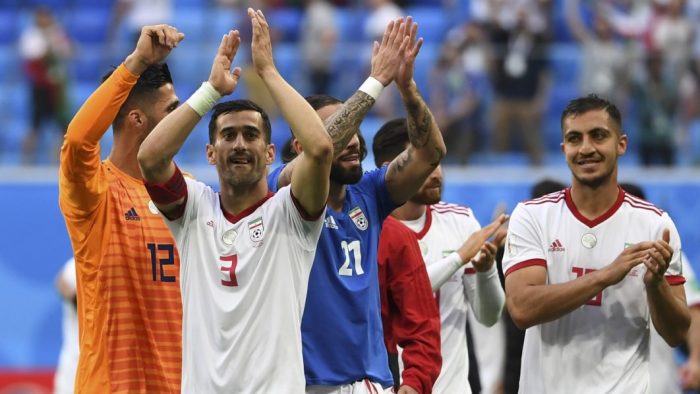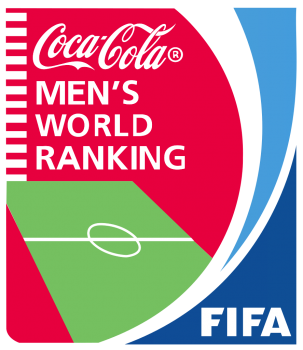How they did – a review of Iran’s World Cup players

Persianfootball.com – TEHRAN, The team delivered the best Iranian World Cup performance ever, despite bein handed the most difficult group possible, meanwhile returned to Tehran, after narrowly failing to achieve one of the biggest upsets in World Cup history.
There was much talk about who would be the right players for such a tournament, so we now look back at the performance of the 16 players used in three memorable games.
Rating scale: 1 poor, 2 solid, 3 good, 4 brilliant
Alireza Beiranvand 4 – The Persepolis goalkeeper didn’t only make headlines with his unique story of the nomad boy leaving his family and sleeping on the streets in Tehran, never giving up his dream of becoming a professional goalkeeper. The 25-year-old, apart from a concentration lapse against Portugal which was not punished, showed an amazing performance, saving several difficult shots, most noteable Cristiano Ronaldo’s spotkick. Sometimes disputed ahead of the World Cup, the man who helped Iran to break the world record of most clean sheets in qualifying, proved he’s the much needed strong goalkeeper behind Iran’s meanwhile world class defense.
Ramin Rezaeian 3 – Not always a starter at his club Oostende, Rezaeian was up to prove he can compete on highest level and he undoubtedly achieved that. While limited in his usually strong offensive runs due to the quality opposition and strict tactical concept of Carlos Queiroz, Rezaeian defensively almost always had everything under control against some of the world’s best. Also here, his performance against Ronaldo certainly crowned a good world Cup in which only his sometimes too dramatic behaviour after fouls was slightly disturbing. Was unlucky when his clearance came off Diego Costa’s knee to end up in the net as Spain’s winning goal.
Morteza Pouraliganji 3 – As the only certain starter in central defense, much responsibility was put on Pouraliganji’s shoulders. He certainly was able to carry it. Souvereign in the air and on the ground, he also was secure in the build-up. Barely getting caught off guard, he gave slightly too much space to Diego Costa in the decisive scene of the clash against Spain. However, after some years in China and Qatar, Iran’s best defender is now surely ready for the move to Europe.
Rouzbeh Cheshmi 3 – Many were worried about Cheshmi’s potential starting role at the world cup after mixed performances in previous friendlies. But Queiroz sticked to the 24-year-old and was rewarded with an absolutely flawless performance against Morocco, where he started as central defender but had to finish the game as defensive midfielder after Omid Ebrahimi injured himself. Unfortunately the Esteghlal man suffered a muscle injury in training after that game and couldn’t feature again.
Majid Hosseini 3 – Barely anyone would have expected the man, who turned 22 on the day Iran faced Spain, to even make the preliminary World Cup squad. Even less would have foreseen the Esteghlal shooting star would have three World Cup appearances. Coming on as late substitute in the opener, he started both further games and at no point looked like a youngster with less than five national team caps under his belt. This man will certainly be a part of Team Melli for years to come and might be able to follow the footsteps of Rahman Rezaei, who so far is the only Iranian centerback who was able to establish himself in a European top league.
Ehsan Hajsafi 3 – Surprisingly used as left-back and not as central midfielder as in qualifiers, Hajsafi did a splendid job defensively and offensively and that despite repeatedly struggling with injuries during the tournament. The Olympiacos man’s only mistake was to shortly lose Quaresma out of sight, although he should be blamed no more for the goal than Vahid Amiri and Saeid Ezatollahi, who failed to close the gap in that situation. Vital his brilliant freekick that led to the injury time winner against Morocco. With his three appearances, Hajsafi now joined Mehdi Mahdavikia, Andranik Teymourian and Alireza Jahanbakhsh in the club of players with six World Cup appearances.
Milad Mohammadi 3 – Becoming the victim of Hajsafi’s left-back starting role, Mohammadi was subbed in during all three matches and always added attacking power to Iran’s left side, while still living up to his defensive duties. One of the fastest full-back’s of the tournament, the Russia based defender hopefully could showcase his skills enough to attract interest of other European clubs.
Omid Ebrahimi 4 – Beside Majid Hosseini and Vahid Amiri, undoubtedly the biggest surprise of the tournament. Always known as solid midfielder, Ebrahimi had to step in due to suspension and injury woes in midfield and the Esteghlal man started all three matches and impressed with his fighting spirit, winning dozens of decisive duels in midfield and also passing the ball well under pressure. Wasn’t he already 30 years old, he would certainly attract interest of Bundesliga and Premier League clubs.
Saeid Ezatollahi 4 – Thoroughly missed against Morocco due to a stupid red card he collected in a meaningless qualifier, Ezatollahi showed why he captained different Iranian youth selections before attracting interest from Atletico Madrid, where he spent one year in the youth team before transferring to Russia at young age. His combination of impressive physique and technique is rare and two very strong performances against Europe’s finest footballers should get his slightly stagnating club career going again.
Masoud Shojaei 2 – Shojaei has always been a player with light and shadow. Blessed with unique skills on the ball, the veteran still tends to keep the ball too long. Although he surely didn’t display a poor performance against Morocco, a little bit more consistency and a few less turnovers must be expected from an experienced player like him. Struggling with a knee injury, the AEK Athens playmaker didn’t get any more playing time after his starting role in the opener, which, however, was enough to make him the first Iranian player to have played in three different World Cups (2006, 2014, 2018).
Karim Ansarifard 3 – The classic centerforward was thrown into an unusual central midfield role in the build-up to this World Cup and also was assigned to this role in all three games, twice as starter and once as sub. While doing the best he can in this position and being among the players with most kilometers covered, it still remained obvious that the man who scored 17 goals for Olympiacos this season will never be a midfielder. Nevertheless, his aeral skills were much needed both in attack and defense and his absolutely perfectly struck penalty against Portugal make him one of the most important Iran players of this World Cup. He could have even become the first Iranian player to score two goals at the finals, as he seemed in perfect position to tap in Hajsafi’s freekick versus Morocco, but Bouhaddouz’s owngoal denied him the opportunity.
Alireza Jahanbakhsh 3 – Much was expected from the winger after his splendid season in the Netherlands and although the 24-year-old in the end failed to collect a goal or an assist, his quality was simply always visible. Whatever Jahanbakhsh does on and off the ball makes sense and is usually well executed. Suffering from Iran’s mostly defensive approach and an not in-form Azmoun, Jahanbakhsh failed to make a decisive impact in the end, but will end up in a top league next season nontheless. Like Hajsafi, he was able to book his sixth World Cup cap, something only two players managed to do before.
Vahid Amiri 4 – Like Ebrahimi, barely anyone would have expected the Persepolis winger to shine on this level. Due to the surplus of great wingers available to Queiroz and the Iran coach’s constant struggles with the Persepolis coach, even his selection seemed doubtful. But Amiri was selected, started all three matches and was phenomenal. Playing as leftwinger and as central midfielder, the 30-year-old leftfooter was integral in Iran’s defending and quick counter attacks and will always be remembered for fooling Pique before sending in a perfect cross which almost resulted in the equalizer. Like Ebrahimi, only his age makes him unattractive for European clubs.
Mehdi Taremi 3 – Most would have expected the 25-year-old offensive allrounder to start on the left wing, but after only coming on as sub in the first game, Taremi actually replaced Jahanbakhsh as right winger against Spain. There he showed what everyone in Iran knew, that he is very strong on the ball and dangerous in front of goal, but that he’s not always the man to convert his chances. What barely anyone would have expected was the stunning defensive performance Taremi showed against Spain and then against Portugal, where he started on the left. Also here, he had a good game but missed a big chance – the one in the very last moment that would have won the group for Iran.
Saman Ghoddos 3 – The shooting star of the Swedish league established himself as super sub in this tournament, but the demands of the Iranian fans to see him in a starting role become louder after his good and effective performances. Winning the freekick that led to the winner against Morocco, the 24-year-old also had a good shot against Portugal that only narrowly missed the goal, before almost setting up the historic winner with a deflected effort, only to be missed by Taremi. Already having attracted interest from Spain and England with his strong displays in the league and in the Europa League, Ghoddos certainly hasn’t decreased his market value with his World Cup appearances.
Sardar Azmoun 2 – A lot was expected from Iran’s biggest attacking talent since Ali Daei, but it was a frustrating World Cup for the Rubin Kazan man and his many fans. But the 23-year-old had a difficult role as sole striker in a very defensive team, one he is used to from club football, where he mostly doesn’t face such world class opposition though. While making many poor decisions on ground passes, he was amazing in the air, winning most aerial duels of all players in the FIFA World Cup. While he missed a sitter against Morocco, he showed that he’s the player who always can make a difference in the final game. First winning the penalty when his header was deflected by Cedric’s hand, and then when he created the final chance of the game by setting up Ghoddos after again winning a duel in the air. Once seen as lazy talent without the stamina for 90 minutes, Azmoun proved that he has worked on his physique and stamina, playing very intense 90 minutes in all three matches. No less than finally making the move to a bigger league is now expected from Azmoun who needs regular stronger opposition to become the great player many predict him to be.


 (8 votes, average: 4.50 out of 5)
(8 votes, average: 4.50 out of 5)

